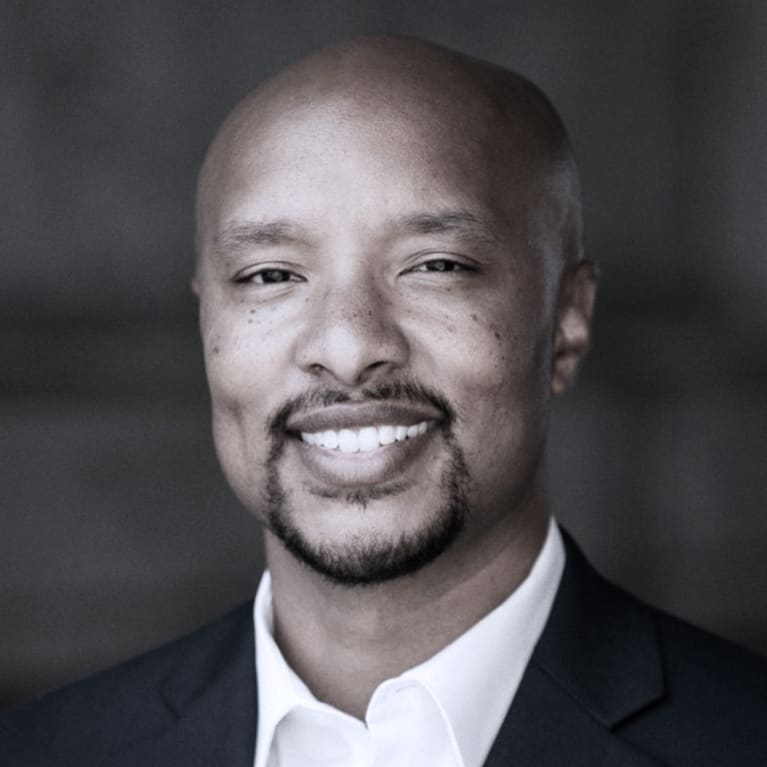NASCAR's Diversity Efforts Pick Up Speed Under New CHRO
PODCAST PERSPECTIVE: In the April 2023 People + Strategy podcast, NASCAR's CHRO John Ferguson explains the organization's drive to create more diversity among the fans and its applicant pool.

American motor sports traditionally haven't been seen as a diverse culture. But at NASCAR, there's a growing emphasis on fostering more diversity among the fans—and within the NASCAR workforce itself.
"That means we're going to different places, and we want to make sure that NASCAR shows up in different ways than you may expect us to, because that's really the model for us going forward," said NASCAR's CHRO John Ferguson, speaking on the April 2023 episode of the People + Strategy podcast. Ferguson led HR teams in the hospitality and sports industries before joining NASCAR in 2021 to lead its people and culture strategies.
This diversity push at NASCAR isn't brand new. The organization launched a Drive for Diversity program 20 years ago to introduce minorities to the sport as competitors and employees. But the effort picked up speed after George Floyd's murder three years ago.
20 years ago to introduce minorities to the sport as competitors and employees. But the effort picked up speed after George Floyd's murder three years ago.
In 2020, the Confederate flag was still prominent in the sport and at NASCAR events. Within a month, NASCAR banned the flag from all its properties and restated a commitment to diversity. The quick result, said Ferguson at last fall's SHRM Executive Network Visionaries conference, was more diversity among the fan base and its applicant pool. "We instantly saw in that action step that the sport opened up to a new world of people, a whole new world of employees. And we're still on that journey," said Ferguson.
On the People + Strategy podcast, Ferguson noted several NASCAR initiatives, including:
- A diversity internship program, aimed at introducing people who aren't native to motor sports to a possible career. Just last year, NASCAR launched a career lab partnership with Bethune-Cookman University, a historically Black institution in Daytona Beach, Fla. "We're going to offer a cohort style of learning experience, where there will be a speaker series, an on-campus marketing activation, a case study, and then tons of career readiness and preparation for them," said Ferguson.
- Employee resource groups. "We have four here, and they're really becoming good business partners to help us execute a lot of the things that we want to do when it comes to increasing our talent pipeline," said Ferguson. The four ERGs, he notes, focus on Black, female, Hispanic and LGBT employees.
- Career fairs. NASCAR is making a conscious effort to showcase diversity in its recruiting events. "When we're going to career fairs or doing conferences, if it's for one of those target demographics, we want to make sure we bring our colleagues that are reflected in that demographic, so that when you walk up to that table, you can see a reflection of yourself represented at NASCAR. I think that's very important," said Ferguson.
A Downshift in Retention Expectations
During the podcast, Ferguson also said NASCAR and most other organizations face another challenge: the decrease in expected job tenure among employees. The job-for-life attitude is long gone, and employees are quicker to jump ship than ever before.
"From the Baby Boomers down to Millennials, the idea of long tenure is shifting … and so I really think about how we are going to develop our retention strategy," said Ferguson.
As a result, Ferguson said companies should approach hiring, training and development so their organizations are "not only a great place to work, but a great place to be from" if employees decide to leave.
"That's really making sure we give our employees skills and abilities that help them increase their toolkit," said Ferguson. "So while they're here, we will benefit from that. But even when they decide that they're ready for the next step, they can continue to reflect back on the time at NASCAR as being a contributor to that process. And then hopefully we may even welcome them back down the road. … I just really think about, how do we prepare for that, because I think that's going to be very different than what we have become accustomed to."
More Key Takeaways from John Ferguson in the People + Strategy Podcast
Deliverables, not face time, are today's currency. "I think the biggest thing that people are desiring is the autonomy to do the work, and not necessarily from 9 to 5. … We've had this way of doing work for the past 100 years, and to look at how we've been measuring it, I think some of that has been tied to the ability to see people doing it. And I think the big switch we need to flip is while we may or may not see someone physically doing [the work] because they may be remote, hybrid or possibly in the office, we really should focus on the outcomes that are being presented and the deliverables and goals being met or not met."
Provide caregivers with empathy, not just better benefits. Ferguson said that providing retention-boosting benefits to employees who serve as family caregivers involves "a level of providing resources, being open to flexible arrangements and schedules. But I think it really bottom-lines with just grace and empathy. Understand your people and do what you can to meet them where they are. … Because you may have an employee who just won't bring up [their caregiver responsibilities], but then you may see it's impacting them in other ways. And so having that ability to have that open and transparent dialogue is one of the greatest tools that we can all continue to nurture."
Was this resource helpful?



